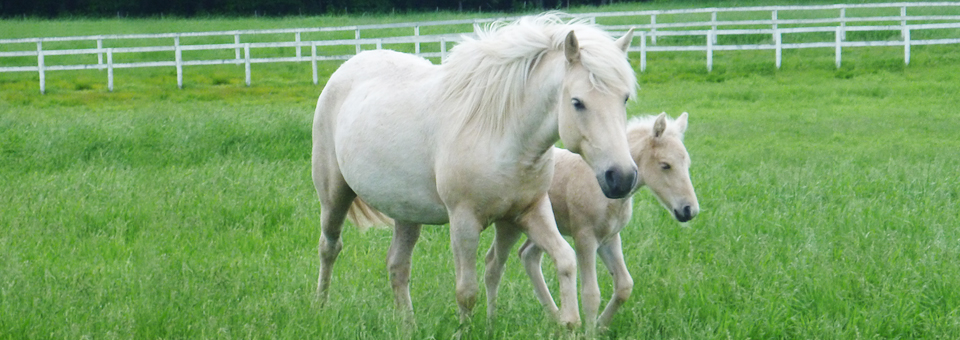
Presentations(International Conferences)
Oral presentation
Takimoto A. & Fujita K. (2012). Nature of prosociality in tufted capuchin monkeys. The 24th Congress of International Primatological Society (IPS), Symposium: THE ORIGIN OF PROSOCIALITY, Oral-400, Cancun, Mexico, 12-18 August, 2012.
Takimoto A. & Fujita K. (2010). Do capuchin monkeys behave prosocially to others at a small expense of their reward in an experimental food sharing situation? The 23rd Congress of International Primatological Society (IPS), Oral-310, Kyoto, Japan, 12-18 September, 2010.
Takimoto A., Hori Y. & Fujita K. (2010). Horses (Equus caballus) are sensitive to human attentional states in the food request task. The 12th Conference of International Association of Human-Animal Interaction Organization (IAHAIO), Oral-56, Stockholm, Sweden, 1-4 July, 2010.
Takimoto A. & Fujita K. (2010). Sensitivity to others’ welfare in capuchin monkeys. International Workshop for Young Researchers “Knowing self, knowing others”, Kyoto, Japan, 29-30 January, 2010.
Takimoto A., Kuroshima H., & Fujita K. (2008). Are tufted capuchin monkeys (Cebus apella) sensitive to unequal food share? An experimental analysis of food-choice for opponents. The 22nd Congress of International Primatological Society (IPS), Oral-546, Edinburgh, the United Kingdom, 3-8 August, 2008.
Poster presentation
Ayaka Takimoto-Inose, Rin Nakamura, Kotaro Yoshioka, Yusuke Hori, Masahito Kawai, Masayuki Nakamichi (2025). An exploratory study of factors influencing stress in mares of Hokkaido native horses during weaning process. The 58th Congress of the International Society for Applied Ethology, Utrecht, Netherlands, 4-8th August, 2025.
Wada, C., Katsu, N., Adachi, I., Kawai, M., & Takimoto-Inose, A. (2021). An exploratory study on contexts, developmental changes and functions of mare-foal vocalizations in domestic horses (Equus caballus). 20th Biennial Meeting of the International Society for Comparative Psychology, Ignition talk-30, Online. December 3-4, 2021.
Takimoto-Inose A., Baba, C., Mitani, T., & Kawai, M. (2019). Social buffering by conspecifics and humans in adult domestic horses. The 14th International Conference on Environmental Enrichment (ICEE2019), Poster-P11 (Program: P156), Kyoto, Japan. June 22-26, 2019.
Takimoto A. & Sato, A. (2017). Horses catch human yawns. Behaviour2017 (a joint meeting of the 35th International Ethological Conference (IEC) and the 2017 Summer Meeting of the Association for the Study of Animal Behaviour (ASAB)), Poster-P67 (Program: P486), Estoril, Portugal. July 30-August 4, 2017
Takimoto A. (2016). Does a human smile serve as a positive reward in horses?. The 31st International Congress of Psychology (ICP), Rapid Communication Poster-RC-11-204(Program:P127), Yokohama, Japan. July 24-29, 2016.
Nakamura K., Takimoto A., & Hasegawa, T. (2016). Do horses understand emotional value of human facial expressions?. The 31st International Congress of Psychology (ICP), Rapid Communication Poster-RC-11-203 (Program: P127), Yokohama, Japan. July 24-29, 2016.
Takimoto A. , Proops L., Saito, A., & Hasegawa, T. (2015). Inequity aversion in horses (Equus Caballus). Behaviour 2015 (a joint meeting of the International Ethological Conference (IEC), Australasian Society for the Study of Animal Behaviour (ASSAB), Australasian Evolution Society (AES), and Australasia, New Zealand and Africa Region of Applied Ethology), Poster-897, Cairns, Australia, 9-14, August, 2015.
Takimoto A. & Fujita K. (2014). The relationship between reciprocal tendency in prosocial reward sharing and rejection tendency of unfair offer in tufted capuchin monkeys. The 25th Congress of International Primatological Society (IPS), Poster-191, Hanoi, Vietnam, 11-16 August, 2014.
Takimoto A., Proops L., Saito, A., & Hasegawa, T. (2014). Inequity aversion in horses (Equus Caballus). The Leading Graduate Program of Primatology and Wildlife Science (PWS) Kick-off Symposium, Poster-17, International Institute for Advanced Studies, Kyoto, Japan. March 6-9, 2014.
Takimoto A. & Fujita K. (2013). Capuchin monkeys’ response to intentional unfair offers in a two-choice ultimatum game. The 33st International Ethological Conference (IEC), Poster-107, Newcastle, the United Kingdom, 4-8, August, 2013.
Takimoto A. & Fujita K. (2012). Capuchin monkeys reject intentional unfair offers in a two-choice ultimatum game. IIAS research Conference 2012 ‘Evolutionary Origins of Mind’, Kyoto, Japan, December 3-6, 2012.
Takimoto A., Hori Y., Tadokoro K., & Fujita K. (2012). Do horses (Equus caballus) show a preference for a fair person? The 2nd International Equine Science Meeting, Regensburg, Germany, March 16-19, 2012.
Takimoto A. & Fujita K. (2010). Capuchin monkeys do not behave prosocially to group members at the expense of their own reward’s value in an experimental reward sharing situation. The 15th Biennial Scientific Meeting of the International Society for Comparative Psychology (ISCP), Poster-31, Hyogo, Japan, 19-21 May, 2010.
Takimoto A. & Fujita K. (2010). Capuchin monkeys are sensitive to others’ labor: an analysis of experimentally induced reward-sharing behavior. HOPE-GM International Symposium “HOPE-GM LECTURES ON PRIMATE MIND and SOCIETY”, Poster-2, Kyoto University, Kyoto, Japan. March 22-23, 2010.
Takimoto A. & Fujita K. (2009). Capuchin monkeys are sensitive to others’ labor: An analysis of experimentally induced reward-sharing behavior. The 31st International Ethological Conference (IEC), Poster-B59, Rennes, France, 19-24, August, 2009.
Takimoto A. & Fujita K. (2008). Are horses (Equus caballus) sensitive to human attentional Horses understand the eye’s role in human attentional states? The 1st International Equine Science Meeting, Regensburg, Germany, October 3-5, 2008.
Takimoto A., Kuroshima H., & Fujita K. (2008). An experimental analysis of the basis of inequity aversion: Sensitivity to others’ reward in capuchin monkeys (Cebus apella). The 20th Annual Meeting of the Human Behavior and Evolution Society (HBES), Poster-87, Kyoto, Japan, June 4-8, 2008.
Takimoto A., Kuroshima H., & Fujita K. (2008). Do capuchin monkeys bribe dominants? The International Symposium on Comparative Cognitive Science 2008 Primate origins of human mind, Poster-A8, Kyoto, Japan, May 28-30, 2008.
